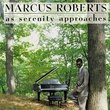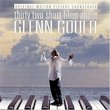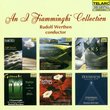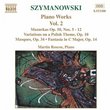| All Artists: Gustav Mahler, Pierre Boulez, Wiener Philharmoniker, Thomas Quasthoff, Violeta Urmana, Anne Sofie von Otter Title: Mahler: Lieder - Quasthoff / Urmana / von Otter / Wiener Philharmoniker / Boulez Members Wishing: 0 Total Copies: 0 Label: Deutsche Grammophon Release Date: 1/11/2005 Genres: Pop, Classical Styles: Vocal Pop, Historical Periods, Modern, 20th, & 21st Century, Symphonies Number of Discs: 1 SwapaCD Credits: 1 UPCs: 028947753292, 028947753292 |
Search - Gustav Mahler, Pierre Boulez, Wiener Philharmoniker :: Mahler: Lieder - Quasthoff / Urmana / von Otter / Wiener Philharmoniker / Boulez
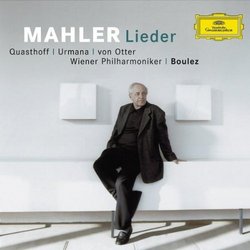 | Gustav Mahler, Pierre Boulez, Wiener Philharmoniker Mahler: Lieder - Quasthoff / Urmana / von Otter / Wiener Philharmoniker / Boulez Genres: Pop, Classical These songs reveal Mahler, that frankly autobiographical composer, at his emotionally most personal. For the Songs of a Wayfarer, the earliest cycle (later extensively revised), the poetry--a sorrowful tale of unrequited ... more » |
Larger Image |
CD DetailsSynopsis
Amazon.com These songs reveal Mahler, that frankly autobiographical composer, at his emotionally most personal. For the Songs of a Wayfarer, the earliest cycle (later extensively revised), the poetry--a sorrowful tale of unrequited young love--is Mahler's own. The music is simple, lyrical, and deeply moving, going from inward grief through suicidal anguish to calm resignation. (Two of the themes reappear in the First Symphony.) In Kindertotenlieder, the poet Friedrich Rückert laments the loss of his children, a tragedy he knew from personal experience. Mahler, however, began composing the music before he became a father; two years after he'd completed it, his older daughter died. The cycle contains some of the most harrowing, wrenching songs in the literature. By contrast, the five other Rückert songs radiate a serene happiness that is like a breath of fresh air. The performances on this disc are breathtaking. Quasthoff's voice seems to become more and more beautiful; pure, velvety and warm, it has an endless range of dynamics, nuances and inflections. He draws the listener in from the first moment. Urmana gives the Rückert songs just the right sunny lightness, soaring up in long, sustained, caressing phrases; she keeps the last song, "Um Mitternacht," from becoming bombastic. Although the Kindertotenlieder are really a bereaved father's lament, von Otter makes them totally convincing. Her voice is dark, intense, and luminous. As for the orchestra, Boulez inspires masterful precision and impeccable balance, letting every line stand out. He turns Mahler's incomparable instrumentation into a tapestry of blazing, glittering colors, unleashing both inward and outward tempests. This record will leave you overwhelmed and heartbroken. --Edith Eisler Similarly Requested CDs
|
CD ReviewsThree of Mahler's Song Cycles, Three Artists, One Conductor Grady Harp | Los Angeles, CA United States | 06/27/2005 (5 out of 5 stars) "Pierre Boulez, now in his eighties, has become not only a master of orchestral score clarity: Boulez has also become a poet of the Romantic repertoire. The three beloved song cycles of Gustav Mahler here performed are among Mahler's most tender statements and Boulez allows all of the beauty and anguish to flow unfettered under his leadership. The brilliant Thomas Quasthoff offers one of the most exquisitely sung 'Lieder eines fahrenden Gesellen' ever recorded. His voice is lush and rich and seamless and he maintains his high level of musicality while becoming utterly absorbed in the poetry of the lyrics. The result is ravishingly beautiful. Violeta Urmana follows him singing the 'Ruckert Lieder' with somewhat of a light voice until she reaches the 'Ich bin der Welt abhanden gekommen' when she settles into not only a lovely vocal bloom but a sense of emotional commitment. She continues this mood through the final 'Um Mitternacht'. And then the stage belongs to Anne Sofie von Otter for 'Kindertotenlieder'. With Boulez she creates magic out of these mournful songs. This is one of the best performances we're likely to hear for a while. In the end it is to Boulez' credit that he selected the soloists and placed the order of songs and of course conducts the entire ensemble (the Vienna Philharmonic is the orchestra) with expressive brio. Highly recommended. Grady Harp, June 05" Lovely beyond words!!! R. J. Gonzalez | Napa, CA United States | 05/12/2005 (5 out of 5 stars) "At long last...a recording of the Wayfarer Songs that surpasses the classic Fischer-Dieskau from 1968...once thought to be unassailable!!! Why??? Quasthoff's ineffably beautiful voice and performance; Boulez' incredible, mellow, EMOTIONAL conducting; and the Vienna Philharmonic miraculously shadows the two of them with their very special signature sound. Fischer-Dieskau's voice always sounded to me like it was a limited instrument, but his artistry and intelligence always helped him navigate smoothly around its limitations. Quasthoff, on the other hand, has one of the most luscious voices for this repertoire and it is here displayed with a degree of subtlety and musicality that is touching -- heart-breakingly so... Even more important, this recording features a timpanist than can play in tune. The Bavarian Radio Orchestra, under Rafael Kubelik, in the older recording, includes a timpanist that NEVER gets his lower note in tune with the rest of the orchestra: a serious problem to anyone with a trained musical ear, especially with all the exposed timpani solos in this music. The Rückert songs and the Kindertotenlieder, as sung by Urmana and von Otter are good performances, but most definitely not on the plane of Quasthoff and the Wayfarer cycle. Too bad the idiots at DGG didn't get the other cycles recorded by Quasthoff, also!!! If that had been the case, this recording would have been an instant classic. As it is, the Wayfarer Songs, as performed by Thomas Quasthoff on this disc, are worth every penny. For the other two cycles run, don't walk, and get Janet Baker's recordings on EMI/Angel, then pray DGG will record Quasthoff's performances very soon!!! BUY THIS AND LOVE IT!!!" Amazing G. D. Peterson | San Mateo, CA USA | 03/21/2005 (5 out of 5 stars) "Boulez doing Mahler produces disparate results. His recording with the CSO of the 9nth is devoid of feeling, as if he were pushing Mahler past Webern somehow.
But this recording is unbelievable in beauty, tenderness. It is as if Boulez were comfortable simply to take the time to present the music in the most expressive way possible, but with equisite restraint. And the orchestra, one I do not usually like, is right there with him it what seems to me an amazingly passionate performance." |

